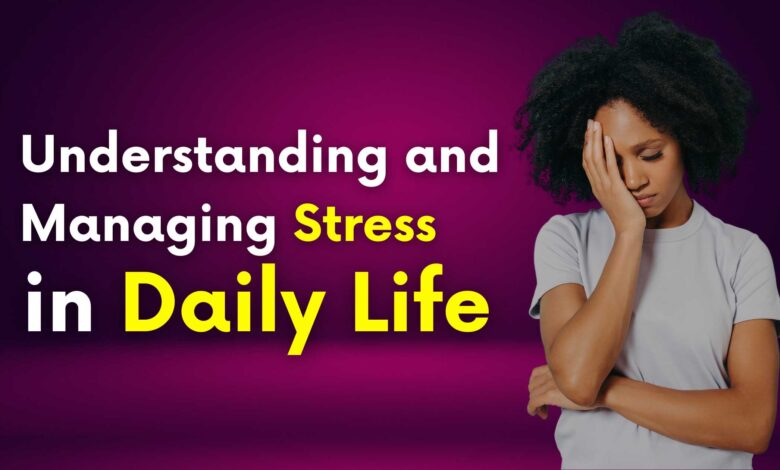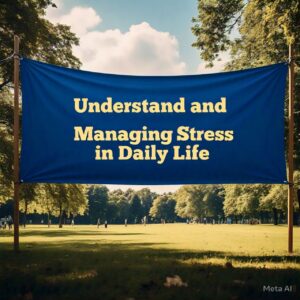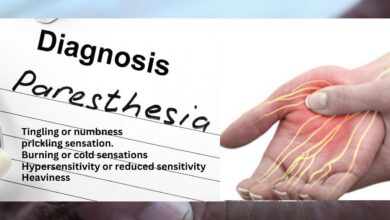

In modern, hectic lives, stress has become an ever-present presence for many people. While some degree of stress is normal and even beneficial, chronic or overwhelming stress can affect physical, emotional, and mental health. This essay explores the complexities of stress, its impact on daily life, and strategies to understand and effectively manage stress amid the rigors of everyday life.
Table of Contents
The Nature of Stress:
Stress is essentially the body’s natural response to a perceived threat or challenge, triggering a series of physiological and psychological responses. While short-term stress stimulates motivation, improves performance, and makes it easier to adapt to changing circumstances, chronic stress can lead to a variety of health problems, including cardiovascular disease, anxiety disorders, and depression.
Understanding the nature of stress is critical to developing effective coping mechanisms and reducing its harmful effects.
Identify stressors:
One of the first steps in stress management is identifying the cause or stressor that triggers the body’s stress response. Stressors are wide-ranging and include work-related pressures, financial worries, relationship conflicts, health concerns, and even internal stressors such as perfectionism and lack of self-confidence.
Recognizing and recognizing these stressors provides individuals with insight into their stress triggers and allows them to develop targeted coping strategies.
How stress affects health and well-being:
The effects of stress on health and well-being are profound and far-reaching. Long-term exposure to stress hormones such as cortisol and adrenaline can disrupt various body systems, leading to increased blood pressure, impaired immune function, digestive disorders, sleep disorders, and increased risk of chronic disease.
Additionally, stress can worsen mental illnesses such as anxiety and depression, perpetuating a vicious cycle of distress.
Effective stress management strategies:
Although stress cannot be completely eliminated from daily life, adopting proactive stress management strategies can significantly reduce the negative effects of stress and promote resilience. These strategies include a multifaceted approach that addresses the physical, emotional, and behavioral aspects of stress.
1) Healthy lifestyle habits:
Prioritizing self-care through regular exercise, nutritious food, adequate sleep, and relaxation techniques are the cornerstones of stress management. Participating in activities that promote relaxation and restoration, such as yoga, meditation, breathing exercises, and spending time in nature, can reduce stress and restore balance.
2) Time management and prioritization:
Effective time management and task prioritization can prevent feelings of overwhelm and help individuals regain a sense of control over their lives. Breaking down tasks into manageable chunks, setting realistic goals, and delegating responsibilities as needed will reduce stress and increase productivity.
3) Cognitive restructuring:
Cognitive-behavioral techniques, such as cognitive restructuring, involve challenging and reframing negative thought patterns that cause stress and anxiety. By adopting a more balanced and rational perspective, individuals can reduce the emotional impact of stressors and develop healthier coping strategies.
4) Social support network:
Building a strong social support network and maintaining meaningful relationships can act as a buffer against stress. Sharing concerns, asking for advice, and receiving emotional support from friends, family, and support groups can provide relief and perspective during difficult times.
5) Seeking Professional Help:
When stress becomes overwhelming or significantly interferes with daily life, it may be necessary to seek professional help from a therapist, counsellor, or health care provider. These professionals can provide advice, support, and therapeutic interventions tailored to the individual’s needs.
Also Read: Top Wellness Trends You Should Follow in 2025
Conclusion:
In summary, understanding and managing stress in daily life is a multifaceted endeavor that requires self-awareness, active coping strategies, and a holistic approach to well-being.
By recognizing stressors, adopting healthy lifestyle habits, employing effective stress management techniques, and seeking support when needed, a person can navigate the complexities of modern life with more resilience and poise. Ultimately, by prioritizing self-care and developing adaptive coping mechanisms, individuals can regain control of their lives and thrive despite adversity.




